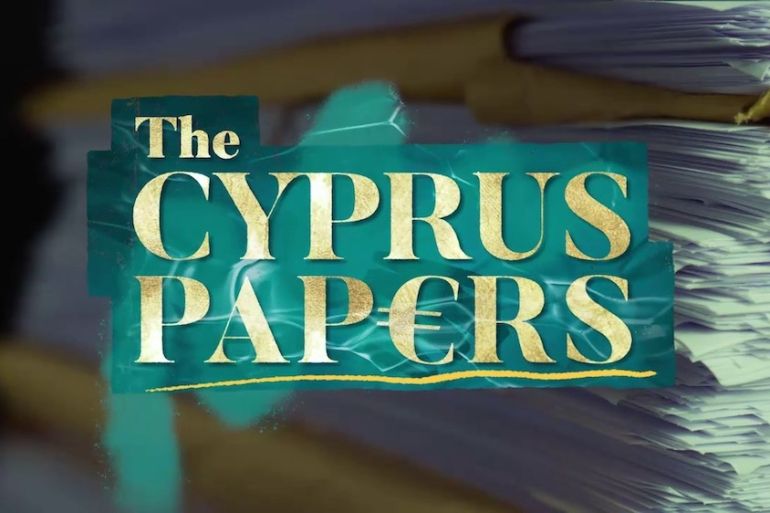Explainer: What are The Cyprus Papers?
Al Jazeera has obtained over 1,400 Cypriot passport applications, revealing they were sold to criminals and fugitives.

The Cyprus Papers are a batch of leaked documents obtained exclusively by Al Jazeera’s Investigative Unit, containing more than 1,400 approved applications for the Cyprus Investment Programme (CIP) run by the Republic of Cyprus.
The programme allows people to buy a Cypriot passport, and by extension become European Union citizens, by investing at least 2.15m euros ($2.5m) in the country.
Keep reading
list of 4 itemsMyanmar Army on the Ropes
Slapped: Speaking Up In Thailand
Slovakia: The Return of Fico
The Cypriot passport allows its holder to travel freely to 174 countries, making the scheme popular with people from nations where visa-free travel is restricted.
The applications Al Jazeera obtained were submitted over two years between 2017 and 2019. Some include family members, which brings the total number of individuals granted European passports to nearly 2,500.
In the coming days, Al Jazeera will reveal the identities of dozens of people who acquired Cypriot citizenship and who, according to the country’s present rules, should not have received the document.
What is the Cyprus Investment Programme (CIP)?
The programme allows people from around the world to buy citizenship of the Republic of Cyprus. For a minimum investment of 2.15 million euros ($2.5m), people can become citizens of Cyprus and, by extension, citizens of the EU, with the ability to live, travel and work across the 27 EU member states.
What is the problem with buying citizenship?
There is nothing illegal with acquiring new citizenship and several countries, including Caribbean islands, offer this service.
The problem with turning citizenship into a commodity lies in the risk that people will abuse their newfound rights to escape accountability from their countries of origin.
In several cases, the investigation identified people who obtained their Cypriot passports shortly before criminal charges were filed against them. Several were living in exile, having been charged in absentia.
For many of the ultra-high net worth individuals in The Cyprus Papers, the $2.5m required to buy Cypriot passports is a small portion of their total wealth.
What wrongdoing did Al Jazeera’s Investigative Unit find in The Cyprus Papers?
Among the 2,500 names that appear on the leaked documents, there are dozens of individuals who anti-corruption campaigners say should not have been granted Cypriot citizenship, or who could be stripped of their Cypriot citizenship because of criminal activity following the granting of their passports.
Know more about nefarious passport sales or other wrongdoing? Find out how to get in touch with us on our Tips page.
Why do critics say some of these people should not have been allowed passports?
From the programme’s inception in 2013, applicants had to prove they had a clean criminal record, although it was up to the applicants to establish this themselves.
In response to criticism, changes to the scheme’s rules were announced in February 2019.
Applicants were banned from acquiring Cypriot citizenship if they had ever been under investigation, faced criminal charges or had past criminal convictions. Individuals who were placed under international sanctions by the EU or third-party countries such as the United States, Russia or Ukraine, as well as those who work for a sanctioned entity, were banned from acquiring a Cypriot passport.
Finally, elected or appointed government officials, known as “politically exposed persons” or “PEPs”, were also prevented from acquiring citizenship. But these rules are not retrospective so those who had already bought a passport by then could keep it.
What’s the problem with these politically exposed persons – or ‘PEPs’?
Corruption experts claim that PEPs – even where they have not been accused of any wrongdoing – by virtue of the fact that they have access to public funds and the decision-making process in disbursing those funds, are considered to be at a much higher risk of corruption.
In countries with a poor rule of law, the principal means of getting rich can be to control the provision of public funds. This could be either as a public official who might receive bribes to be induced to award government contracts to privileged private-sector partners, or by private-sector actors who might inflate invoices and pocket the extra money from public funds.
Where do these newly naturalised Cypriots hail from?
Citizenship applications came from all over the world, more than 70 countries in total. The countries with the highest numbers of applicants were Russia (1,000), China (500) and Ukraine (100). However, there were also people from the United Kingdom and the US, Mali and Morocco, Israel, Palestine, South Africa, South Korea and Saudi Arabia.
Why is this such a big problem?
The Cypriot government has been found to have granted European citizenship to criminals, those under criminal investigation and to people who are considered to be at a high risk of corruption – on a scale that critics claim is systematic.
The European Commission, as well as leading anti-corruption NGOs Global Witness and Transparency International, have criticised the Cyprus Investment Programme and want it phased out.
They claim the programme has facilitated the laundering of stolen assets from Russia and beyond, and has eroded trust in financial institutions in the EU.
So what does Cyprus say and what will happen now?
The Cypriot government says it has tightened its rules and that each application submitted under the CIP was in accordance with the regulations in place at the time.
Cyprus has now promised to strip some naturalised Cypriots of their citizenship if they are guilty of serious wrongdoing.
In July 2020, it passed a law allowing this to happen. The interior minister says, as an EU member state, it functions with absolute transparency.